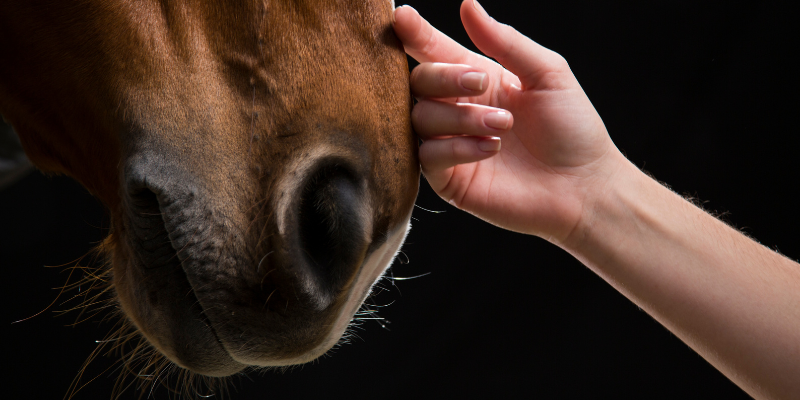Animal behaviourists play a crucial role in understanding and addressing the intricate behaviours of pets and wildlife. Their expertise is essential in resolving behavioural concerns, ensuring a harmonious relationship between humans and animals.
In this blog, we explore the importance of animal behaviourists, the qualifications required to become one, and how they contribute to animal welfare. If you're fascinated by animal behaviour and considering a career in this field, comprehending the functions and qualifications of an animal behaviourist is key.
The Role and Importance of Animal Behaviourists
Animal behaviourists specialise in analysing how animals interact with their environment, other animals, and humans. By examining these interactions, they identify issues affecting an animal's daily life and develop strategies to enhance its wellbeing and improve bonds with its owner. Behaviourists for dogs significantly aid pet owners by addressing concerns like excessive barking, aggression, anxiety, or inappropriate toileting, which may stem from past experiences, inadequate socialisation, or health issues. The same can be said for a feline behaviourist or a horse behaviourist.
Unlike trainers who teach commands, clinical animal behaviourists explore the root causes of behaviours for long-term emotional health. In severe cases, such as phobias or aggression, they collaborate with veterinarians to rule out medical problems, ensuring comprehensive care. You may hear these individuals referred to as a clinical animal behaviourist. In some cases, veterinarians will complete advanced training themselves to qualify as a veterinary behaviourist and provide this service themselves.
In any case, engaging with a horse, cat, or dog behaviourist can transform how owners understand and interact with their pets. At learndirect, we offer courses to deepen your understanding and skills, equipping you to nurture and guide animals effectively.
Qualifications and Career Path for Animal Behaviourists
Embarking on a career as an animal behaviourist involves formal education, practical experience, and adherence to professional standards. A degree in animal behaviour, psychology, or related fields offers foundational knowledge about animal biology and behaviour patterns. Advanced qualifications, such as a Master’s degree or specialised courses, refine understanding and enhance employability.
Certification is crucial for credibility. In the UK, the Animal Behaviour and Training Council (ABTC) certifies behaviourists, ensuring high standards. Aspiring behaviourists must complete recognised qualifications, gather practical hours, and pass assessments. Certification ensures they can address diverse issues, from pet behavioural problems to complex animal welfare cases.
Professional standards are vital in safeguarding animal welfare and fostering client trust. Adhering to ethical guidelines ensures that any behaviourist for dogs, cats, horses or otherwise stays informed about the latest research and techniques, providing effective solutions. By upholding high standards, horse behaviourists and those dealing with other animals contribute positively to the profession's reputation, assuring pet owners of knowledgeable and ethical support
Investing in education and maintaining professional standards prepares aspiring behaviourists to make a positive impact on animals and their owners.

Types of Animals Worked with and How Behaviourists Help
Animal behaviourists work with various animals, including domestic pets like dogs, cats, and horses, as well as wildlife. Their expertise extends to understanding the unique behavioural needs of different species, allowing them to tailor approaches accordingly.
A dog behaviourist, for instance, would know specific ways to address a dog's anxiety. Whereas a feline behaviourist will know more about the reasoning behind a cat's aggression, and those specialising in wildlife will tailor their skill set to the needs of wild animals. In any case, behaviourists enhance animal welfare and promote harmonious human-animal relationships.
Creating behaviour modification plans involves focusing on positive reinforcement and humane techniques. By addressing the root causes of behavioural issues, behaviourists foster healthier emotional states in animals, improving their quality of life and strengthening bonds with human companions.

Educational Opportunities at learndirect
For those interested in animal behaviour, learndirect offers a range of courses to equip you with the necessary insights for a career in this rewarding field.
For those looking for an entry-level course, our Certificates of Achievement in Animal Psychology, Advanced Animal Psychology and Wild Animal Behaviour provide detailed knowledge of animal behaviour principles.
If you're looking for a more in-depth study experience that can help kickstart your career in this space, we offer regulated qualifications in areas like:
- Level 2 Award in Canine Care and Welfare (RQF)
- Level 3 Award in Feline Care, Welfare and Behaviour
- Level 3 Award in Canine Care and Welfare (RQF)
- Level 3 Diploma in Feline Care, Welfare and Behaviour
- Level 3 Diploma in Canine Care, Behaviour and Welfare (RQF)
- Level 4 Diploma in Canine Welfare, Training and Behaviour (RQF)
- Level 5 Diploma for Canine Behaviour Practitioners
- Levels 3, 4, and 5 Combined Canine Behaviour Package
- Levels 2, 3, 4, and 5 Combined Canine Behaviour Package
Our Combined Canine Behaviour Packages offer efficient learning paths for understanding canine behaviour management. These courses ensure you are well-prepared to embark on a career as a behaviourist for dogs. By choosing learndirect, you gain access to expert knowledge and practical skills, paving the way for a successful career in animal behaviour.
Enhance Your Skills in Animal Behaviour
If you're passionate about understanding animal behaviour, enrol in one of our comprehensive courses and gain the qualifications you need to excel as an animal or veterinary behaviourist. Our programmes are designed to equip you with the knowledge and skills to make a real difference in the lives of pets and their owners.
With expert guidance, you'll learn about various approaches to animal behaviour modification and develop a deep understanding of pet psychology. Our accredited courses are recognised by leading organisations, ensuring you receive top-notch education and support throughout your journey.
Join a community of like-minded individuals and take the first step towards a rewarding career. Sign up today and unlock your potential in the field of animal behaviour!
View our online animal behaviour courses here, or click below to download our FREE animal faculty course brochure!




















